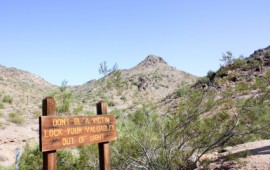4th of July: Outdoor Safety Now & All Summer
Author: Shannon Miller Lifestyle

The summer is such a great time to get everyone outdoors and enjoying nature.
Just make sure to have a plan in place in case of an emergency in the great outdoors.
1. Carry a cell phone. Not all places have cell phone coverage. You are less likely to get cell phone reception in remote places and campgrounds, though many campgrounds now even offer wi-fi. It’s best to have a cell phone around anyway in case of emergency, and to have phone numbers on speed dial for the area you are in: emergency response team, family members, and the main office of the camp ground or recreation department, if applicable.
2. Carry a First Aid kit. A general first aid kit will have:
- bandages
- gauze
- tape
- iodine
- antibiotic ointment
And, for allergic reactions, such as if someone is allergic to bees, carry an epipen as well.
3. Be CPR/First Aid Certified. Someone on every trip should be current in CPR and First Aid, in case of emergency. That person, preferably, is YOU so that you know what to do if something happens to anyone on your trip. Get your certification through your local chapter of the American Heart Association or American Red Cross.
4. Know the background of everyone on your trip. Sometimes, you have other peoples’ children with you. Even adults will not tell each other about certain medical conditions. Make sure everyone on your trip has shared with you information that may be important in case of emergency, such as allergies, heart conditions, and medications.
5. Always have water. If you think you have enough water, bring some more. If someone dehydrates or starts to feel overheated, water is the fastest way to help.
6. Always have sunscreen. Even if you think you won’t be out in the sun very much, or it’s a cloudy day, always screen yourself and everyone in your group 30 minutes before heading out, and then reapply every couple of hours. A sunburn can sneak up on you… and who wants wrinkles!
7. Watch the weather before you head out. Make sure you know if there is a weather warning, and be prepared for it. Even if there is no weather warning, prepare for possible conditions, like pop-up storms if you are near a flood zone. Have easy, foldable ponchos, and be ready to set up shelter quickly.
What if…?
1. Someone gets stung by a bee?
Right after the sting, remove the stinger if there is one, and lower the body part below the heart. If the person is allergic or shows allergic reactions (shortness of breath, swelling of the face or throat), call 911 immediately and get help. Have your CPR certified person ready to administer CPR if necessary.
Once the stinger is out and you can see that the venom is not going to flow to the heart or brain, you can elevate the body part and apply ice to reduce swelling.
2. Someone gets bit by something?
Bites out in the wilderness could be anything. If it is followed by streaking or allergic reactions, call 911 and get help immediately. Again, have the CPR certified person ready, just in case.
If the bite is swelling and turning colors, assume that the person has cellulitis and will need to see a doctor as soon as he or she can. This is not a cause for a 911 call, but a trip to the doctor or ER very soon afterward.
3. Someone gets a bad sunburn?
Get a towel wet and cool, if possible, and apply to the sunburn. Do not try to freeze it or pop any blisters. Have the person take an ibuprofen. If the person seems to be getting very sick from the sunburn, take him or her to a doctor immediately. For a less severe sunburn, try natural aloe to take the stinging sensation out. This can apply to other type of burns such as from fireworks or campfires.
4. Someone is injured badly?
Do not try to move someone who is badly injured unless they are in danger where they are (a fire, for instance). Call 911 and use first aid knowledge.
